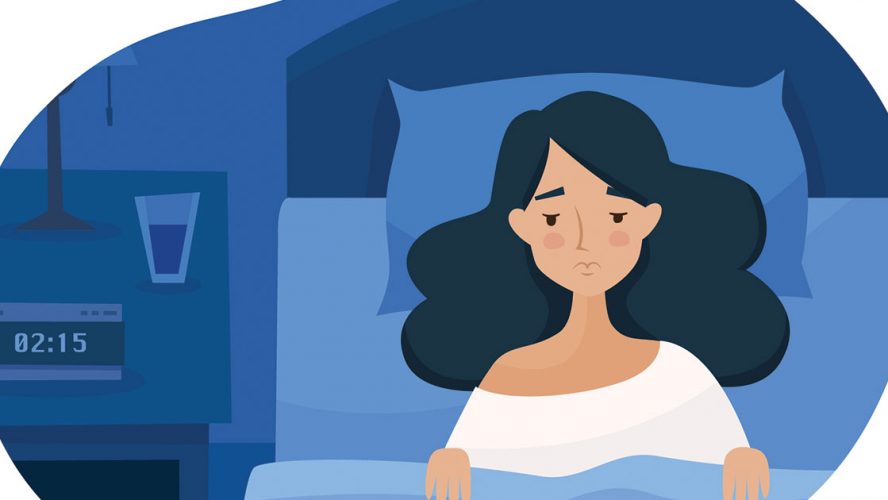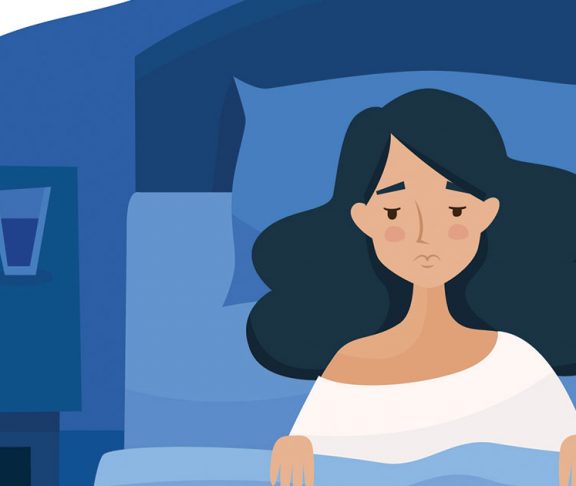
William C. Heckman, MS, DAIS
Executive Director, The American Institute of Stress
At the American Institute of Stress, we often get asked about stress and its multiple effects on the mind, body, and sleep. Because we all know, it’s hard to get a good night’s sleep when you are stressed.
Sleep deprivation is one of the most common problems in our society. Insufficient sleep robs us of the ability to feel alert and rested in the morning and can ruin our whole day and so much more. Sleep loss can have a negative effect on our physical health, mental wellbeing, cause memory problems, and affect mood. We have all experienced the occasional “bad night,” but when it becomes a persistent problem, it needs attention. A chronic sleep-deprived state can result in clumsiness, a myriad of physical diseases as the body struggles to repair itself, chronic fatigue, and increased appetite leading to obesity. It could also result in workplace absenteeism and accidents.
So how much sleep do you need? In February 2015, The National Sleep Foundation (NSF) reached a consensus from experts in sleep, anatomy and physiology, as well as pediatrics, neurology, gerontology, and gynecology. It recommended sleep durations through the years starting from 14-17 hours for newborns, 9-11 hours for children 6-13-years-old, 8-10 hours for teenagers and 7-8 hours for adults over 18.
Here are some tips from AIS to get that needed good night’s sleep:
Breathing and relaxation techniques
Dr. Daniel L. Kirsch, president of AIS suggests setting aside more time each day to mentally and physically recuperate. He recommends a six-second stress relief exercise, called “The Quieting Reflex” developed by the late neurophysiologist and psychiatrist, Charles Strobel, PhD, MD to be practiced at the first signs of stress or sleepiness.
- First, relax your face by smiling inwardly with your eyes and mouth, which describes a way of relaxing your facial muscles.
- Slowly take a deep breath while visualizing it as warm air coming in from pores, or holes opening in the bottom of your feet and slowly moving up into your lungs.
- While you exhale visualize a wave of warmth and relaxation slowly flowing through your body exiting back down through your feet.
Guided imagery
Guided imagery is a mind-body technique that utilizes simple visualization to alleviate stress and promote sleep. To practice, get into a comfortable position, close your eyes, and think about a specific moment, scene, or story—it doesn’t matter what you think about as long as it’s relaxing to you. For instance, you might imagine sitting on the beach with waves lapping at your feet or reading underneath a tree with the leaves on the branches gently swaying in the wind. Get as detailed as possible—what do you see, smell, hear, taste, and feel? If you find your mind wandering back to whatever was keeping you up, just turn your focus back to the imagery again. Keep doing this until you drift off.
Take a course to relieve your stress
AIS offers certified courses to teach you how to master your stress and channel it into positive energy. The Stress to Joy program and The Nuuaria Method of learning meditation both to teach you how to manage your stress, get a better night’s sleep, and generally improve the quality of your life by devoting just minutes a day to gain control of your mind and thoughts.
Charge your brain
People who can’t fall asleep or have trouble staying asleep and who have failed all of the above attempts can usually enjoy healthy, normal sleep with the FDA cleared non-drug Alpha-Stim® AID. It is a prescription medical device that uses a tiny amount of electrical current, similar to the amount and type naturally occurring in your brain, via electrodes that clip to your earlobes. The process is known as cranial electrotherapy stimulation (CES). It increases sleep time, reduces sleep disturbances, and improves overall sleep quality. There are no lasting side effects or risk of addiction from CES treatment. Supported by over 100 scientific studies, Alpha-Stim is used at more than half of the Veteran Affairs Medical Centers and prescribed by hundreds of military doctors because service members cannot function on sleeping pills.
Sleep solutions
Lack of sleep can lead to serious medical conditions. Paying attention to your stress and doing something about it now can save you years of unhappiness later. You simply cannot afford to ignore your sleep deprivation or the stress that is causing it.
A little consideration and care can help you sleep well and improve your quality of life. If preventive measures are not helpful, consider seeing a qualified health professional to make sure that your sleep problem is not associated with some undiagnosed medical condition.
Lastly, we would recommend that people avoid using drugs as a sleeping crutch. Sleeping pills can have horrendous side effects including slurred speech, uncoordinated movements, unsteady gait, inability to focus and impaired memory. Although rare, people who use sleeping pills may even develop parasomnias; sleep disorders that include behaviors like sleepwalking, sleep-eating, sleep-sex, sleep-driving, and other potentially dangerous sleep-related activities. Take control of your own life by learning to manage your stress now.
Having trouble falling asleep? Not to worry, Mediaplanet’s sleep playlist will help soothe your mind and put you at ease, you’ll be dreaming in no time!



